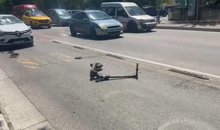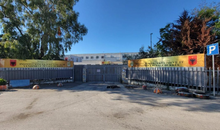
 Flash News
Flash News
Drenova prison police officer arrested for bringing drugs and illegal items into cell
Lavrov: NATO is risking self-destruction with new military budget
Kurti and Vučić "face off" tomorrow in Skopje
Construction worker dies after falling from scaffolding in Berat
The prosecution sends two Korça Municipality officials to trial
'La Stampa' emphasizes the big problems that have arisen from the construction of centers for immigrants in Albania

An article by "La Stampa" highlights the great problems that have arisen from the construction of centers for the repatriation of immigrants in Albania.
Among the main challenges are the legal ones with the Court of Rome that will deal with all the crimes committed in these centers, coping with the lack of staff and the heavy workload.
The article also raises concerns about the high costs, which include the costs of building and maintaining these centers, as well as additional salaries for the law enforcement officers who will serve there.
FULL ARTICLE
Cpr in Albania, what a confusion. This time the alarm comes from the Court of Rome, which according to the law is competent for all crimes committed in the Repatriation Detention Center (Cpr). The identification center is being built in Shengjin, while the real Cpr will be in Gjader, two localities located about twenty kilometers apart.
The agreement between the Meloni government and the Rama government is clear: to create the first center for Italian migrants outside Italian territory. This area of more than 77,000 square meters, with ten containers surrounded by high walls and barbed wire, will be under the jurisdiction of the Italian state. Italian law enforcement, Italian laws. Outside this perimeter, the situation changes, as shown by the presence of the Albanian armed forces.
From a legal perspective, implementation is much more complicated. All cases related to crimes committed in the CPR, except those against Albanian citizens, will be transferred to the fifth floor of Piazzale Clodio, in the Office of the Court of Preliminary Investigations (GIP). Although there should be 41 judges, currently there are only 32, of which four have different exemptions from their duties. Actually, the effective number is 28.
Various issues will be discussed at their tables: from rebellions, resistance to public officials, to violent incidents between detainees. Even smaller issues are usually dealt with more quickly.
"In this case, the rules for quick trials do not apply," they say in the corridors of the Palace of Justice, showing concern. Criticism starts with personnel problems. "We are understaffed," they mutter in Piazzale Clodio. "This is a known issue, but the GIP office is being overburdened while resources are not being increased." At the moment, the Ministry of Justice does not seem concerned about this situation.
In addition to the lack of staff to handle the potential workload, there are also technical concerns. The case of the CPR in Albania imposes a kind of forced procedure, with longer deadlines, even for small cases. "We should take turns," suggested the officials. "Because every step is a problem in itself."
The prosecutor has 48 hours to communicate the arrest, and the judge must schedule a confirmation hearing within another 48 hours. "Very long terms, as if it were a special process for crimes that can be dealt with more simply." During the hearing, the defendant must be present.
"The session will take place remotely, through the Teams platform," they explain. "But that requires rooms with video conferencing screens," like those set up in the 18th civil court section. "If we have to, we'll use them." And how will lawyers communicate with detainees confidentially? What will be done with the translators? And the lawyer, before the hearing, will he be able to connect from his office or must he always use the courtroom?
In the case of confirmation of the arrest, it remains to be clarified where the detainee will be kept: in Albania or will he be transferred to Italy? This would further add to the high cost of the project. So far, 800,000 euros have been spent on the construction of two structures. Only for the compensation of the transfer of law enforcement that will serve in the CPR, it is expected to spend about one million euros per month./ LaStampa
Latest news



Second hearing on the protected areas law, Zhupa: Unconstitutional and dangerous
2025-06-30 22:18:46



Israel-Iran conflict, Bushati: Albanians should be concerned
2025-06-30 21:32:42

Fuga: Journalism in Albania today in severe crisis
2025-06-30 21:07:11
"There is no room for panic"/ Moore: Serbia does not dare to attack Kosovo!
2025-06-30 20:49:53

Temperatures above 40 degrees, France closes nuclear plants and schools
2025-06-30 20:28:42
Lavrov: NATO is risking self-destruction with new military budget
2025-06-30 20:13:54
Turkey against the "Bektashi state" in Albania: Give up this idea!
2025-06-30 20:03:24

Accused of sexual abuse, producer Diddy awaits court decision
2025-06-30 19:40:44



Kurti and Vučić "face off" tomorrow in Skopje
2025-06-30 18:44:12
Tourism: new season, old problems
2025-06-30 18:27:23


Construction worker dies after falling from scaffolding in Berat
2025-06-30 17:51:44




Almost free housing: East Germany against depopulation
2025-06-30 16:43:06

Hamas says nearly 60 people killed in Gaza as Trump calls for ceasefire
2025-06-30 16:14:15
Drownings on beaches/ Expert Softa: Negligence and incompetence by institutions!
2025-06-30 16:00:03


European ports are overloaded due to Trump tariffs
2025-06-30 15:30:44
The prosecution sends two Korça Municipality officials to trial
2025-06-30 15:19:54

Lezha/ Police impose 3165 administrative measures, handcuff 19 drivers
2025-06-30 14:55:04
Young people leave Albania in search of a more sustainable future
2025-06-30 14:47:52
Record-breaking summer, health threats and preventive measures
2025-06-30 14:36:19


Constitution of the Parliament, Osmani invites political leaders to a meeting
2025-06-30 14:07:54

Heat wave 'invades' Europe, Spain records temperatures up to 46 degrees Celsius
2025-06-30 13:42:02
Accident in Vlora, car hits 2 tourists
2025-06-30 13:32:16

Kurti confirms participation in today's official dinner in Skopje
2025-06-30 13:03:27

Fight between 4 minors in Kosovo, one of them injured with a knife
2025-06-30 12:38:45

Report: Teenage girls the loneliest in the world
2025-06-30 12:20:40
Commissioner Kos and Balkan leaders meet in Skopje on Growth Plan
2025-06-30 12:07:59
Wanted by Italy, member of a criminal organization captured in Fier
2025-06-30 11:55:53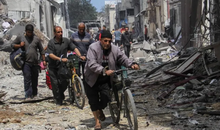
Hundreds of families displaced by wave of Israeli airstrikes in Gaza
2025-06-30 11:45:17

Zenel Beshi: The criminal who even 50 convictions won't move from Britain
2025-06-30 11:23:19
A new variant of Covid will circulate during the summer, here are the symptoms
2025-06-30 11:14:58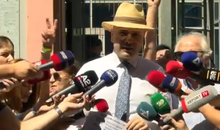
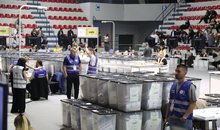
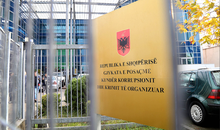
"Partizani" case, trial postponed to July 21 at the Special Court
2025-06-30 10:41:05
Uncontrolled desire to steal, what is kleptomania, why is it caused
2025-06-30 10:30:08
Requested change of security measure, hearing for Malltez postponed to July 7
2025-06-30 10:24:32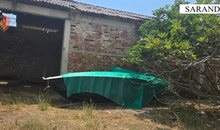
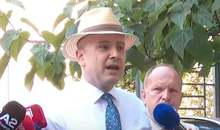

Output per working hour in Albania 35% lower than the regional average
2025-06-30 09:54:35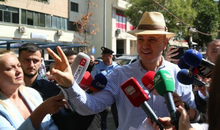
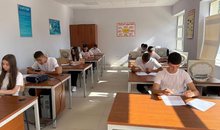
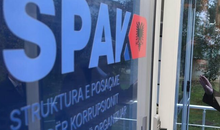
The trial for the "Partizani" file begins today
2025-06-30 09:27:57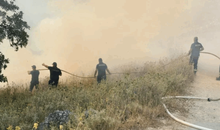
22 fires in the last 24 hours in the country, 2 still active
2025-06-30 09:21:28
How is the media controlled? The 'Rama' case and government propaganda
2025-06-30 09:13:36
German top diplomat: Putin wants Ukraine to capitulate
2025-06-30 09:00:07
Foreign exchange, how much foreign currencies are sold and bought today
2025-06-30 08:44:38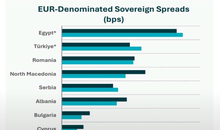
Chart/ Sovereign risk for Albania from international markets drops significantly
2025-06-30 08:26:38
Horoscope, what do the stars have in store for you?
2025-06-30 08:11:44
Clear weather and passing clouds, here is the forecast for this Monday
2025-06-30 07:59:32
Morning Post/ In 2 lines: What mattered yesterday in Albania
2025-06-30 07:47:37
Milan make official two departures in attack
2025-06-29 21:57:23
6 record tone
2025-06-29 21:30:46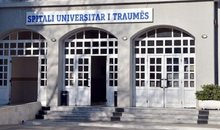
4-year-old girl falls from balcony in Lezha, urgently taken to Trauma
2025-06-29 21:09:58


Assets worth 12 million euros seized from cocaine trafficking organization
2025-06-29 19:39:43
Fire in Durrës, Blushi: The state exists only on paper
2025-06-29 19:17:48

Fire endangers homes in Vlora, helicopter intervention begins
2025-06-29 18:27:51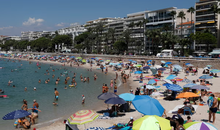
France implements smoking ban on beaches and parks
2025-06-29 18:02:08
England U-21 beat Germany to become European champions
2025-06-29 17:42:49
Trump criticizes Israeli prosecutors over Netanyahu's corruption trial
2025-06-29 17:08:10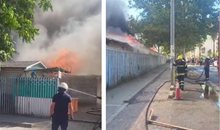
Street market in Durrës engulfed in flames
2025-06-29 16:52:57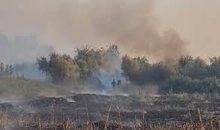

UN nuclear chief: Iran could resume uranium enrichment within months
2025-06-29 16:03:24
Albanian man dies after falling from cliff while climbing mountain in Italy
2025-06-29 15:52:01
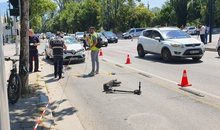
Another accident with a single-track vehicle in Tirana, a car hits a 17-year-old
2025-06-29 15:07:15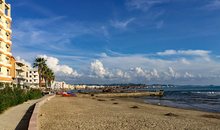
While bathing in the sea, a vacationer in Durrës dies
2025-06-29 14:54:01
Sentenced to life imprisonment, cell phone found in Laert Haxhiu's cell
2025-06-29 14:26:40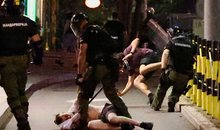
77 people detained in protest, Vučić warns of new arrests
2025-06-29 14:07:46